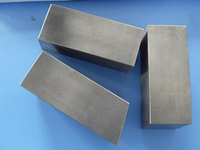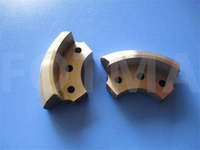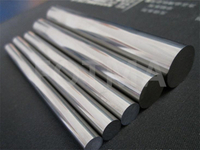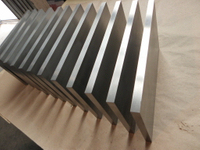Views: 3 Author: Site Editor Publish Time: 2023-08-14 Origin: Site
A titanium alloy is a material composed primarily of titanium but also containing other elements to enhance its properties for specific applications. Titanium itself is a lightweight, strong, and corrosion-resistant metal known for its high strength-to-weight ratio. By alloying titanium with other elements, engineers can tailor its properties to meet the requirements of various industries and applications.
Here are some key characteristics and uses of titanium alloys:
Characteristics:
Lightweight: Titanium is known for its low density, making it lighter than many other metals, including steel and even some aluminum alloys.
Strength: While not as dense as steel, titanium alloys can be just as strong or even stronger, making them ideal for applications where weight savings are crucial.
Corrosion Resistance: Titanium's natural oxide layer provides exceptional resistance to corrosion, making titanium alloys well-suited for environments where exposure to moisture, chemicals, and saltwater is common.
Biocompatibility: Titanium alloys are biocompatible, meaning they can be used in medical implants, such as joint replacements and dental implants, without causing adverse reactions in the body.
High Temperature Resistance: Some titanium alloys retain their strength and stability at high temperatures, making them suitable for aerospace and industrial applications.
Non-magnetic: Titanium alloys are non-magnetic, which is advantageous in industries like aerospace and medical technology.
Common Titanium Alloys and Their Uses:
Ti-6Al-4V (Grade 5): This is one of the most widely used titanium alloys. It contains 6% aluminum and 4% vanadium. It offers a balance of strength, corrosion resistance, and weldability. It's used in aerospace components, aircraft structures, and biomedical implants.
Ti-6Al-2Sn-4Zr-2Mo (Ti 6-2-4-2): This alloy contains additional elements to improve high-temperature performance. It's used in aircraft engines and components subjected to elevated temperatures.
Ti-3Al-2.5V (Grade 9): This alloy is used for its excellent weldability and is commonly used in bicycle frames, tubing, and other applications requiring moderate strength and good corrosion resistance.
Ti-15V-3Cr-3Sn-3Al (Beta C): Known as a beta titanium alloy, this material has a combination of good strength, toughness, and formability. It's used in aerospace and marine applications.
Ti-5553 (Beta 21S): This beta titanium alloy offers excellent cold formability and corrosion resistance. It's used in aerospace applications and has potential for automotive lightweighting.
Ti-64ELI (Extra-Low Interstitial): This is a variant of Ti-6Al-4V with reduced levels of interstitial elements, making it more suitable for medical implant applications.
Commercially Pure (CP) Titanium: This includes grades 1 to 4 and is used in applications where corrosion resistance and formability are essential, such as chemical processing equipment and marine components.
 Titanium alloys find applications in aerospace, automotive, medical, chemical, and other industries where their unique combination of properties offers advantages. The specific alloy chosen depends on the requirements of the application, including factors like strength, corrosion resistance, temperature stability, and weight considerations.
Titanium alloys find applications in aerospace, automotive, medical, chemical, and other industries where their unique combination of properties offers advantages. The specific alloy chosen depends on the requirements of the application, including factors like strength, corrosion resistance, temperature stability, and weight considerations.





